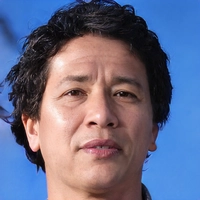Career Advice for Breaking Into the Motorsports World
When you start looking for Career Advice, guidance that helps you build a professional path in the motorsports industry. Also known as career tips, it covers everything from education to first‑job strategies.
If you love the roar of engines and want to turn that passion into a paycheck, Motorsports Journalism, the craft of reporting news, race results and behind‑the‑scenes stories in motor racing is a natural entry point. Career advice for this field emphasizes two core ideas: you need deep sport knowledge and a solid portfolio. A well‑written article about a recent Grand Prix can showcase both, proving you understand the sport’s rules, teams, and drivers while also displaying your writing chops.
Key Steps That Turn Passion Into a Profession
First, Networking, building relationships with editors, team PR staff and other journalists is the engine that drives most hiring decisions. Attend race weekends, join fan clubs, and chat with media personnel in the pits. Those casual conversations often turn into freelance gigs or full‑time offers. Career advice therefore states: the more people who know your name, the easier it is to hear about openings.
Second, securing an Internship, a short‑term, hands‑on role that lets you learn the day‑to‑day workflow of a racing newsroom gives you real‑world experience and a foot in the door. Many teams and media outlets run summer programs where you’ll write race previews, edit footage, or handle social media. The experience not only builds your résumé but also teaches you industry‑specific tools like timing software and telemetry analysis.
Third, compile a Portfolio, a curated collection of your best written pieces, video clips, or audio interviews. A diverse portfolio demonstrates versatility – from quick pit‑stop recaps to in‑depth feature stories. Hiring managers often scan portfolios first; a strong showcase can bypass a lengthy interview process.
These steps form a chain: Career advice encompasses motorsports journalism, requires networking, and benefits from internships, which in turn influence job acquisition. When you connect the dots – knowledge, contacts, experience, and proof – you create a compelling case for any employer.
Beyond journalism, the same framework applies to engineering, team management, or event coordination roles within the sport. Understanding the specific language of each sub‑field, meeting the right people, and proving your competence with real projects are universal career‑building tactics.
Below you’ll find practical guides, personal stories, and actionable checklists that bring this advice to life. Dive in to see how you can move from fan to professional, one focused step at a time.

